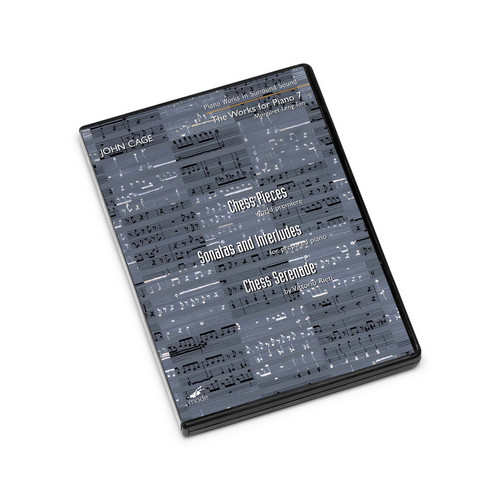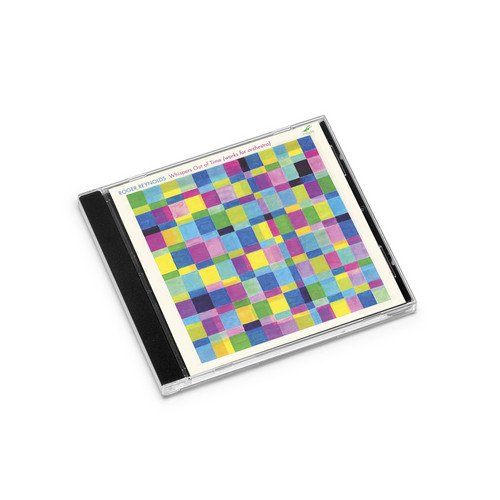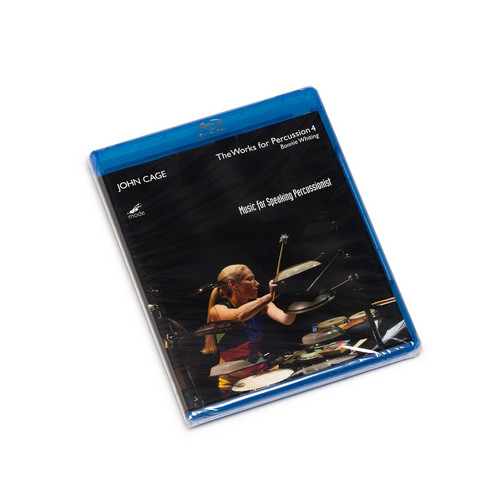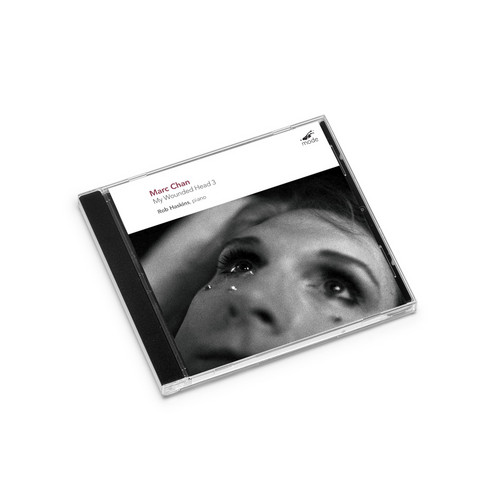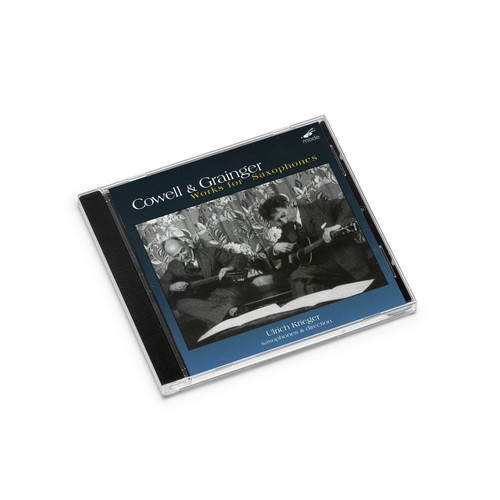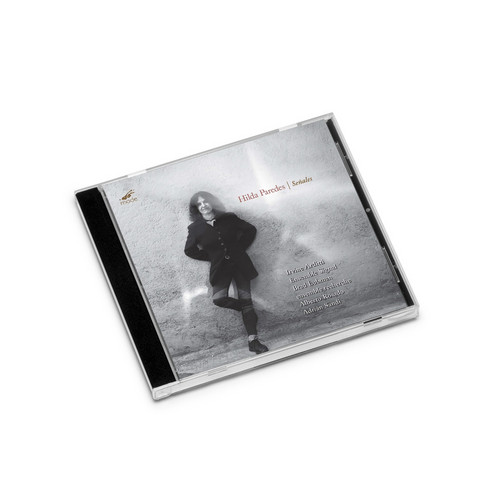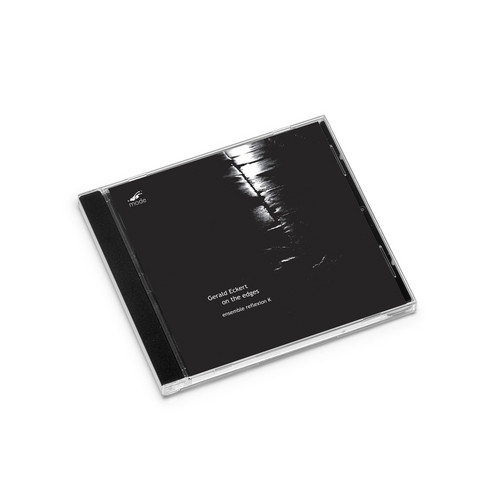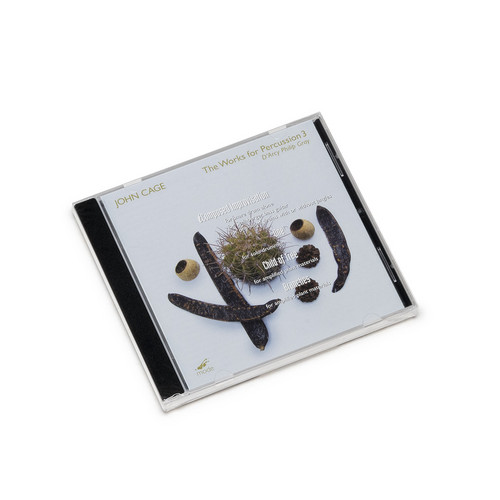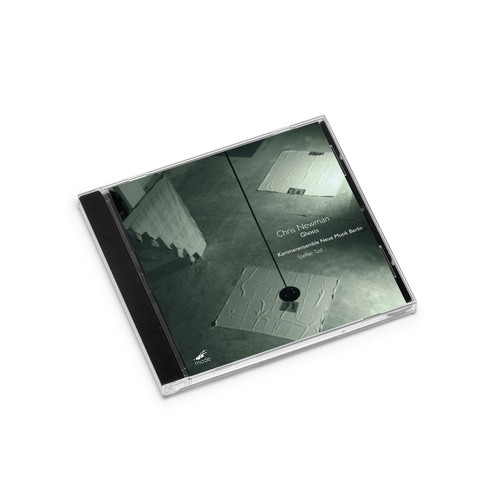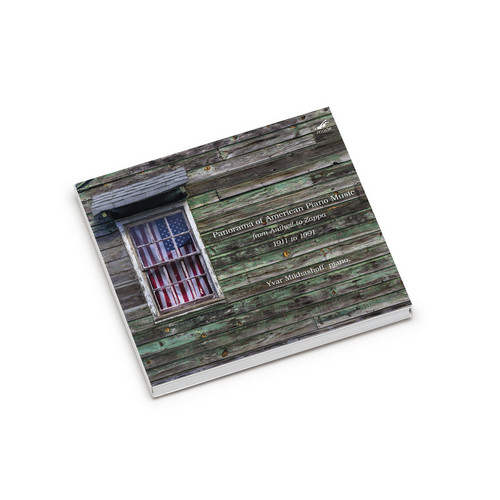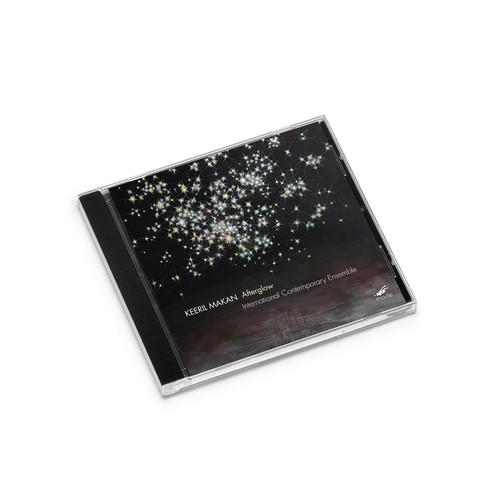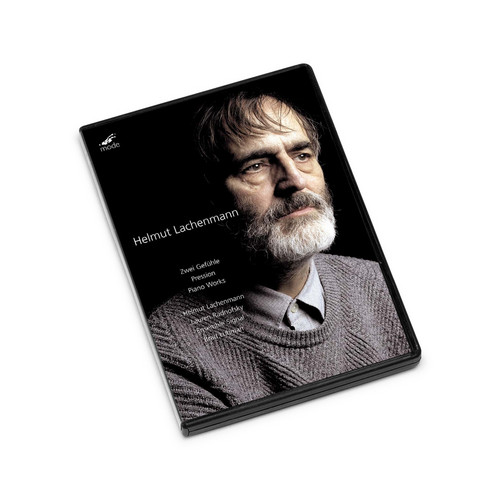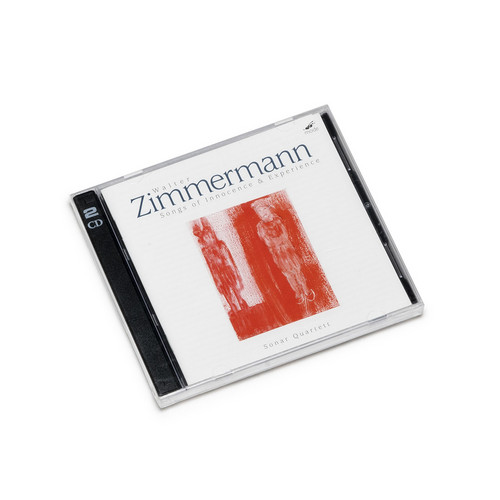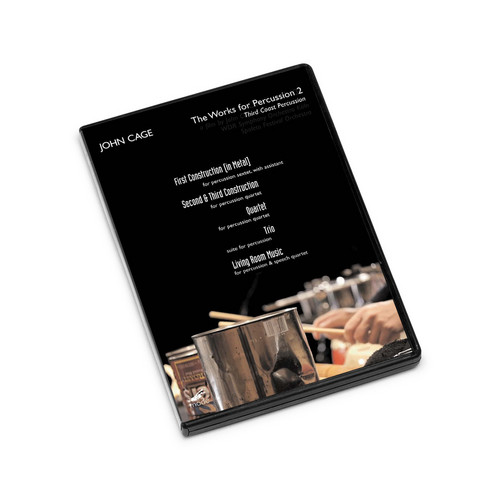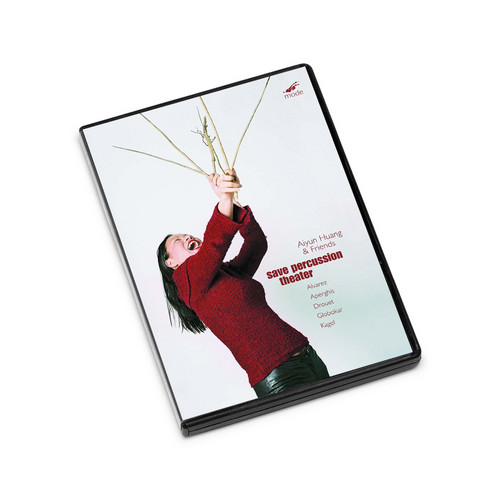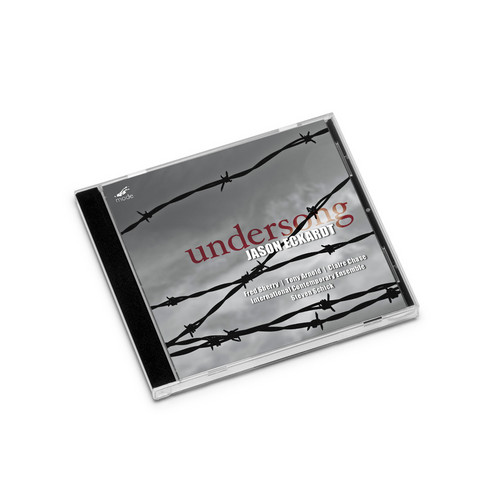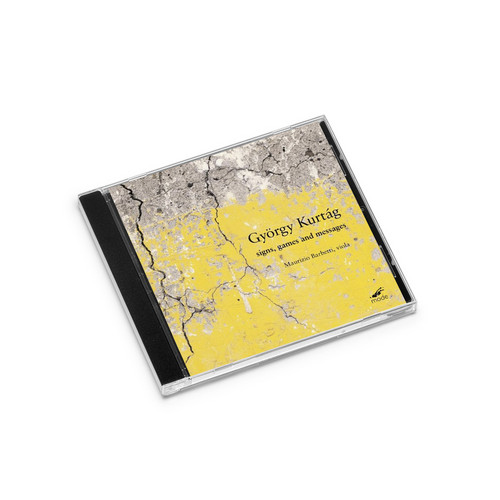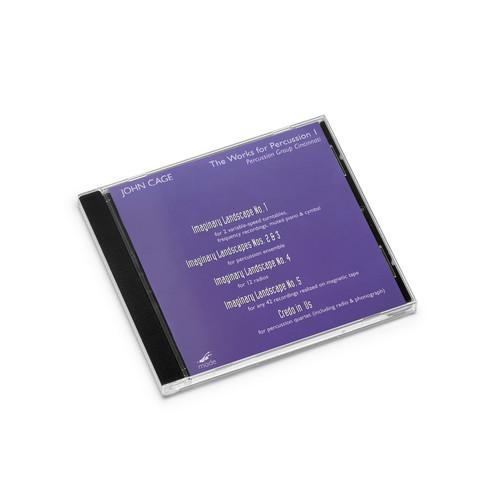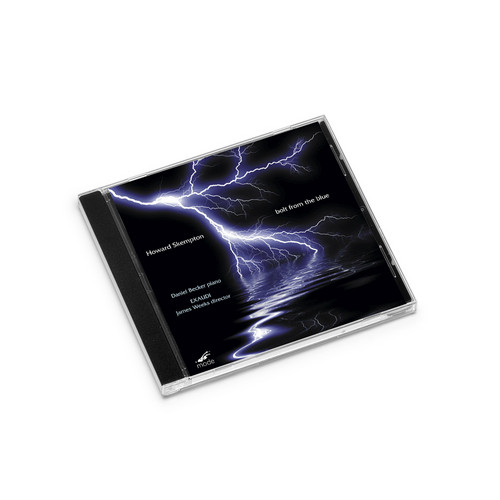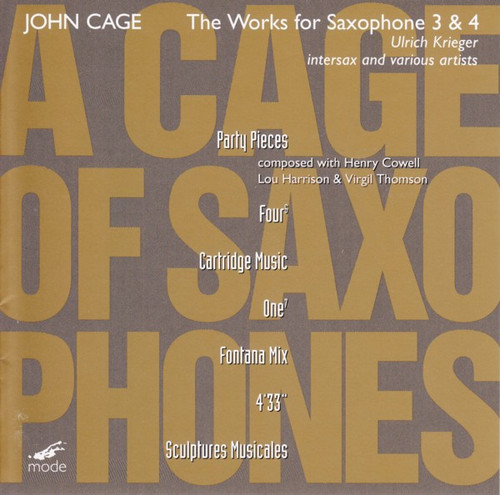The Piano Works 7 - Chess Serenade
A major discovery and first recording of an important Cage piece from 1944. In 1944, John Cage was invited to participate in “The Imagery of Chess” exhibition at the Julien Levy Gallery in New York City. The artists included Calder, Noguchi, Motherwell, Breton, Duchamp, Ernst, Man Ray, Tanning and other leading surrealists.Cage contributed a painting entitled “Chess Pieces”. It was purchased at the show and went into a private collection. For decades it was deemed lost and was (almost) forgotten…
Whispers Out Of Time
Roger Reynolds’ (b.1939) music is a bit of a paradox: intimate in detail, while on a broader scale it is epic. It fits well with the music of his friends: Toru Takemitsu and Iannis Xenakis. The three works on this disc were composed over a four-year period (1987-1990). All are first recordings, and the first complete disc of Reynolds’ orchestral music. Symphony[Myths], dedicated to Takemitsu, is for large orchestra: woodwinds in fours, piano, harp and an extended percussion section. It is see…
The Works for Percussion 4
A Flower; The Wonderful Widow of Eighteen Springs; 51’15.657” for a speaking percussionist (realization Whiting); Music for Two (By One) (realization Whiting) — Bonnie Whiting, voice & percussion + Allen OTTE/John CAGE: Connecting Egypt to Madison through Columbus Ohio, Cage, and the History of the American Labor Movement (realization Otte) — Allen Otte, voice, prepared piano, percussion. It includes full video and 48khz/24-bit PCM audio + 73 minute video interview with Whiting and Otte, discuss…
My Wounded Head 3
An indefinite, open-ended composition of short sections that allows the performer to decide what and when to repeat or to go on to the next phrase is not new. Terry Riley's In C is the milestone score of decades ago. Slow, prolonged, quasi repetitive and contemplative works in the Western classical style are also familiar though the scores of Morton Feldman, John Adams, Brian Eno, John Luther Adams, and Gavin Bryars. Thus, Marc Chan's piano piece, My Wounded Head 3, inspired by Bach's Passion Ch…
Complete Music with Saxophones
22 works are included, 9 by Grainger, 7 by Cowell and 5 by Cowell as arranged by Grainger. Many are first recordings. They are scored for varied instrumentation: sax ensembles, sax & piano and sax & orchestra. Ulrich Krieger, saxophones & director, various artists
Señales
Señales —Señales, “Homenaje a Jonathan Harvey” for violin & ensemble (Irvine Arditti, violin. Ensemble Signal/Brad Lubman); Páramo de voces for piano & tape (Alberto Rosado, piano); Intermezzo malinconico for bass clarinet solo (Adrián Sandi); Homenaje a Remedios Vario; Recuerdos del Porvenir (ensemble recherche)
On the Edges
"The main focus of Gerald Eckert’s music is frequently not placed on a centrally triggered event or center of action, but on what has been triggered by this event and how the consequences are subsequently developed. In other words, he focuses his sights on what an impulse is followed by. For Außen, von tief innen (Outside, from Deep Within), the consistent subtle and quiet tonal structure of the work is the fine delineation of multiphonics in bass flute and double bass clarinet alongside the ton…
The Works for Percussion 3
John Cage’s vision of the future of music was first shaped by an intense creative period from 1935-1942, when he wrote many of the seminal works of percussion chamber music featured here. When he composed these works, the young Cage was basically the same age as the members of Third Coast Percussion. This release includes all three of the groundbreaking Constructions. First Construction (in Metal) utilizes dozens of metal instruments which are beaten, scraped and shaken, creating an other w…
Ghosts
This CD collects four chamber works in Chris Newman’s idiosyncratic, quirky style, performed by one of Berlin’s leading new music ensembles. Newman appears a vocal soloist in the work Cologne. The texts are derived from a travel brochure about the city of Cologne which was filled with translation mistakes to a hilarious extent. For Ghost Symphony, Newman writes: “the majority of the piece consists of my own five chords to which I applied the rhythmic values of the first movement of Beethoven’s…
Panorama of American Piano Music
* Set consists of Foldover cover with box containing 4 black cardboard-jacketed CDs and a 27-page booklet * Panorama of American Piano Music is a comprehensive survey of 20th century piano works, beginning with Ives’ “The Alcotts” movement from the Concord Sonata (1911) through 1991. Every decade is represented with works from between those years. Pianist Yvar Mikhashoff (1941–93) was a master at presenting marathon concerts on a single theme. The Panorama was one of them, exploring the remark…
Afterglow
** 2021 Stock ** Keeril Makan composes without assumed expectations of an instrument’s sound or a performer’s capabilities, but by exploring the possible, by discovering the beautiful in the unexpected and following where that beauty leads. Makan’s relationship to the world of sounds has its connection to the work of Edgard Varèse and John Cage and by a broad American experimental tradition, with touchstones in the work of some of the European modernists. Afterglow is the outcome of hours spent…
Zwei Gefühle and Solo Works
Violin and viola players whisper over their instruments. A guitarist waits with the closest attention for the moment to make a gesture we might easily have missed. The tuba player rises to go over to the open piano, there to send sounds echoing into its interior. Two cellists, bowing with heavy pressure down near the tailpiece, produce an urgent rasping. From the timpanist comes the sudden fortissimo that seems to shock the music to a standstill… Renowned German composer Helmut Lachenmann’s mus…
Songs Of Innocence & Experience
** 2021 Stock ** This is the first complete recording of Walter Zimmermann’s string quartets. The 10 Fränkische Tänze, from the project Lokale Musik (Local Music) explore the folk music of Franconia in Germany. They are built on research of old peasant books of dances, some dating back to the early 19th century and the beginning of the notation of folk music. The many dance melodies including waltzes, Schottische [German polka], mazurka, galop etc. are captured, rejected and presented in just in…
The Works for Percussion 2
John Cage’s vision of the future of music was first shaped by an intense creative period from 1935-1942, when he wrote many of the seminal works of percussion chamber music featured here. When he composed these works, the young Cage was basically the same age as the members of Third Coast Percussion. This release includes all three of the groundbreaking Constructions. First Construction (in Metal) utilizes dozens of metal instruments which are beaten, scraped and shaken, creating an other world…
Save Percussion Theatre
Aiyun Huang’s unique recital, “Save Percussion Theater,” is a video-recording of theater music for percussion dedicated to the pioneering work of the Parisian group “Trio Le Cercle,” for whom many of these works written and by whom they have been championed. This recording, in essence a document of the complete percussion works from the French school of theater music, is an ambitious undertaking. Here the camera replaces the eye of an audience member, and the microphone his or her ear, yet wit…
Undersong
** 2021 Stock ** An American who came of age in the late 1980s, Jason Eckardt’s music captures the essences of the genres that led him first to performance (as a guitarist), and then to composition: heavy metal and art rock, jazz, gagaku and p’ansori, the Second Viennese School, American post-serialism, and the new complexity. It evokes the power of inspired, virtuosic improvisation, the incisiveness of classical ensemble playing, and the raw expressivity of ethnic music. The first complete CD o…
Signs, Games and Messages
This is the first complete recording of the 24 Signs, Games and Messages by Hungarian composer György Kurtág. Signs, Games and Messages is a collection of very personal miniatures which Kurtág began writing almost 50 years ago, and which he continues to add to through the present day. Many have been written, dedicated or inspired by a particular person; they pass, sometimes impertinent, sad, serene, cheerful, joyful, thoughtful, or melancholic. This CD is completed by the first recordings of fo…
The Works for Percussion I
John Cage’s percussion works are among his most historically important. After 42 Volumes in Mode’s Cage Edition, Mode is releasing the first volume dedicated to his percussion music. Percussion Group Cincinnati is particularly respected for its knowledge of and experience with the entire range of John Cage’s music, having made tours and festival appearances with him on a number of occasions in Europe and in America, and having had pieces created by Cage especially for the Group. Volume 1 cons…
Bolt From The Blue - Music For Piano & Voices
Howard Skempton’s music strikes a chord with many listeners through its deceptive simplicity, beauty and accessible nature. A student of Cornelius Cardew, Skempton was greatly influenced by Satie, Cage and Feldman. This CD of miniatures intersperses choral works with solo piano pieces. The texts for the choral works come from Mary Webb, Edward Thomas, Emerson, Judith Cramond and Longfellow. Liner notes by the composer, who also supervised the choral recording sessions. Skempton was born in 1…
The Works For Saxophone 3 & 4
Ulrich Krieger completes his A Cage of Saxophones survey of Cage’s works composed for, or which can be played on any instrument or instruments. For this volume, Krieger combines works specifically composed for saxophone with works of no specified instrumentation that are suited for saxophones and winds. Most of these are “indeterminate”works, which require the performer to create the realization based on materials supplied by Cage. In some situations, Krieger used Cage’s compositional “tools” …
